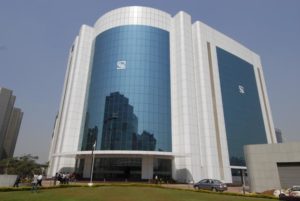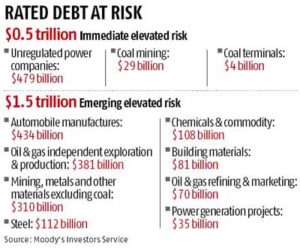 SEBI Chairman, U K Sinha said sale of mutual funds on e-commerce platforms could become effective in a month, a move which will help deepen the respective market. He said sale of mutual funds on e-commerce platforms could become effective in a month, a move which will help deepen the respective market. The markets regulator has set up a committee under Infosys co-founder Nandan Nilekani to deliberate ways in which electronic means can be used better for sale of mutual funds (MF).
SEBI Chairman, U K Sinha said sale of mutual funds on e-commerce platforms could become effective in a month, a move which will help deepen the respective market. He said sale of mutual funds on e-commerce platforms could become effective in a month, a move which will help deepen the respective market. The markets regulator has set up a committee under Infosys co-founder Nandan Nilekani to deliberate ways in which electronic means can be used better for sale of mutual funds (MF).
The committee is also working to make sale of mutual funds possible on e-commerce platforms, the SEBI Chairman said. “My guess is that in the next one month, this will be done (permitting sale of mutual funds on e-commerce websites),” he said while speaking to media on the sidelines of the launch of Bandhan Bank’s 600th branch.
According to Sinha, mutual fund growth in the country has been “very good” and that an ever-growing number of consumers flock to e-commerce websites for shopping. “However, electronic means are not used as well as they should have been and the growth is not happening using such means. We have some experts deliberating on how the electronic means can be used better,” Sinha said.
Targeting the young and educated people with high salaries and disposable income, Sinha said, the move would help them invest easily. “If these people are doing e-shopping, and they know financial markets, then they should also invest in MFs and that is the direction in which we are thinking,” the SEBI Chairman said.
On listing of start-ups, Sinha said it will take its own time. “Important thing to note is that the regulations are in place. If there is a company under pressure, there is alternative before the company to raise(funds),” Sinha noted, adding that the markets regulator was in dialogue with start-ups related to the issue.
Sinha also noted that some start-ups have raised issues concerning taxation but the same is beyond the jurisdiction of SEBI. On initial public offers (IPOs), the SEBI chief said that the pipeline by companies for the coming year is “very healthy”. “You might have noticed that the time taken by SEBI in providing its observations, has come down substantially. Earlier, matters went up to one year, now it is three months on an average for IPOs.”
Sinha noted that SEBI had allowed Rs 60,000 crore worth of IPOs in 2013-14, but the promoters had decided to withdraw the offers implying lack of desire to make investments. “In 2014-15 we saw around Rs 9,500 crore worth of IPOs and this year already Rs 18,000 crore has been garnered through IPOs, while the pipeline going forward is very healthy”, Sinha said.
Source: http://yourstory.com/2015/12/sebi-mutual-funds-e-commerce/






